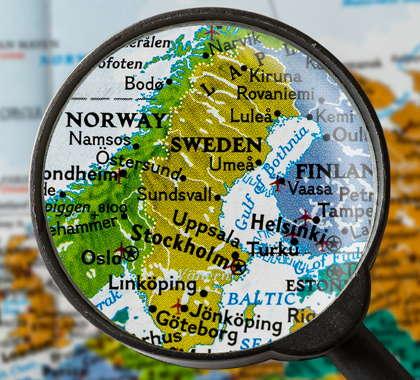In recent years, self-identified “democratic socialists” such as Sen. Bernie Sanders (I-VT) and Rep. Alexandria Ocasio-Cortez (D-NY) have touted socialism as the solution for all of America’s economic and social problems. Although they have not articulated exactly what democratic socialism entails, they have on countless occasions pointed to Denmark, Norway, and Sweden as thriving “socialist” paradises—despite the fact an abundance of evidence shows these countries absolutely are not socialist utopias.
For example, during a 60 Minutes interview in 2019, host Anderson Cooper asked Ocasio-Cortez, “When people hear the word socialism, they think Soviet Union, Cuba, Venezuela. Is that what you have in mind?”
“Of course not,” Ocasio-Cortez replied. “What we have in mind—and what of my—and my policies most closely resemble are what we see in the U.K., in Norway, in Finland, in Sweden.”
Based on Ocasio-Cortez’s comments (and similar remarks from other democratic socialists), many have assumed Denmark, Norway, and Sweden are thriving Marxist socialist paradises and that Scandinavians are much better off than Americans because of their countries’ socialist policies. However, both these assumptions are false. The relatively high standard of living enjoyed by the citizens of these countries is a direct result of the free-market elements of their economies, not high taxes or expansive social welfare programs. This reality is particularly problematic for socialists such as Sanders and Ocasio-Cortez, who view capitalism as “irredeemable” and have hired campaign advisors who believe Hugo Chavez’s socialist reign in Venezuela was an “economic miracle.”
This paper seeks to establish, beyond any doubt, that Denmark, Norway, and Sweden have not embraced Marxist principles throughout much of their economies and are thus not “socialist” nations. Although these countries have, without question, socialized a relatively small number of their industries, such as health care and higher education, most of their economies benefit from strong private property rights protections and numerous free-market elements, including comparatively low regulatory requirements and largely flat tax systems.
This paper includes three primary sections, with each focusing on a single Scandinavian nation. Within each primary section are several subsections that cover a variety of topics related to the Scandinavian socialism myth, including taxes, regulations, and private property rights.





